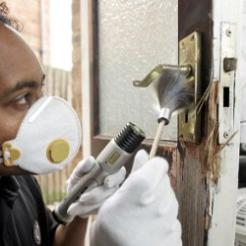A real-life experience prompts Robert Ashton to question the value and safeguards of public service providers for the vulnerable.
As some will know I am a 'carer' for my 88 year old uncle. He lives alone, and as he grows older and more frail, my understanding of the health and social care landscape develops. To be honest I'm impressed by the level of support he gets and wonder constantly how it can be sustainable. When I get to 80 there'll be lots of other baby-boomers zimmering around. Who will pay to keep us safe, fed and comfortable at home? I think we will!
But it was an attempted break-in that gave me an insight into how big national companies deliver local services that I want to write about today. A while ago, a young man with a drug habit attempted to jimmy open my uncle's bedroom window. I guess he was after cash, but when halfway in the old boy woke up and told him where to go. This resulted in a broken window and damaged frame. It also proved that his 88 year old heart is OK for some time yet!
So let’s fast forward to the insurance claim. The insurer's preferred contractor drove 50 miles to estimate what was needed. The insurer will pay for the damage and we have to pay for the rest of the new window because actually, it's too rotten to repair. I was happy with this until I realised that the insurer is to pay just over £100 and we'll pay £2,300. I sought a second quote from a highly respected local joiner. His price is £640.
OK so this is a private sector transaction and thus motivated by profit. But to be recommended by an insurance company means to be trusted; particularly by the vulnerable elderly. Is this how they can offer insurers such low prices?
But look at the way publicly-funded services are increasingly being delivered by large national providers. Are they also robbing Peter to win a contract from Paul? There's very rightly huge scrutiny about the public expenditure on these contracts but who checks that service users topping up are not being ripped off?









